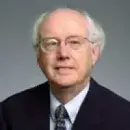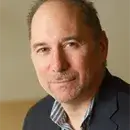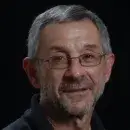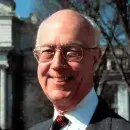Scientists’ Understanding of the Public
This project examined how to improve the scientific community’s appreciation of public concerns about science and technology. The project reversed the more common question of public understanding of science by asking what scientists know or should know about the public and its concerns.
This project examined how to improve the scientific community’s appreciation of public concerns about science and technology. The project reversed the more common question of public understanding of science by asking what scientists know or should know about the public and its concerns. Funded by the Alfred P. Sloan Foundation, the project considered the role of the scientist and the public in deliberations about the tradeoffs inherent in scientific or technological developments.
The Academy brought in leading scientists and technologists together with ethicists, public policy experts, former public officials, science journalists, and others to discuss how scientists can better understand the public’s response to their work. This initiative used a series of case studies, each addressing a distinct topic but guided by a consistent set of framework questions:
- What are scientists’ obligations to understand the broader social and cultural context in which their work is received?
- What risks do emerging technologies pose to human dignity and integrity? What other ethical concerns exist?
- Bring non-proliferation and security concerns to the attention of the nuclear industry.
- What role should the public and/or scientists play in assessing potential risks to society from scientific innovation? How does the public understand risk in new technologies?
- What limitations, if any, should the public (through government) place on science?
Workshops focused on four topics identified as timely and which could benefit from the type of public deliberation envisioned by the project.
The first workshop, held in November 2008, focused on The Next Generation of the Internet. The meeting was chaired by David Clark (MIT), a leader in the development of the Internet. Participants included a diverse cross-section of scientists and public representatives. The discussion addressed issues of identity on the Internet; attribution and provenance; rights and ownership of personal data; and the Internet and child protection. Of these, the issues related to security or safety (as opposed to those of usability or value) emerged as the most important topics. In fact, the single word that seemed best to reflect the concerns of the public was trust: determining the appropriate degree of trust that one should have in different circumstances. This concern could also be expressed as a desire for a reliable, predictable and safe experience. The rapid pace of the Internet’s change, however, leads to a high degree of uncertainty. The participants agreed that it is important that scientists keep this contradiction in mind as they engage with the public.
A second workshop held in April 2009 focused on the Public Perception of Nuclear Waste Repositories; it was chaired by Thomas Isaacs (Stanford University and Lawrence Livermore National Laboratory). If nuclear power is to play an increased role in meeting the nation’s energy needs, it will be essential to provide for the disposal of the spent fuel generated by nuclear power plants. Currently, there is no operating facility for permanent disposal of this material. In 1957, a U.S. National Academy of Sciences report recommended that high-level nuclear waste could be safely and permanently disposed of in deep, stable geological formations. Yet developing and opening a geologic repository has proved very difficult for two main reasons. First, it has been scientifically challenging to demonstrate to the public that the natural and engineered barriers in the repository location deep underground can be relied upon to isolate the waste for the time period required for its neutralization. Second, achieving acceptance for any location as the site of a nation’s nuclear waste final repository has been politically challenging. In bringing together scientists, engineers and public representatives who think about this topic, the Academy fostered an unusual and important dialogue among key stakeholders on this vital issue.
In May 2009, the Academy held a third workshop on The Spread of Personal Genetic Information, chaired by David Altshuler (Harvard University). Recent progress in human genetics and genomics reveals clues about the molecular underpinnings of many human diseases. These initial findings have led to an explosion of genetic testing for numerous diseases and conditions, in both medical and direct-to-consumer settings. "Personalized" genomic testing, in which individual genomes are analyzed at various levels, provides a mix of complicated and often incomplete information whose uses and implications are not yet fully understood. Given the profound implications of the widespread availability of this information, the fact that regulation of such services is still in development, and the uncertain impact of these short-term uses on longer-term scientific goals, this is an opportune time to bring scientists and the public together to share perspectives on this topic.
The fourth workshop, chaired by Robert Fri (Resources for the Future) and held in December 2009, explored the Risks and Benefits of Emerging Energy Technologies. Population growth and the threat of global climate change have created the need for alternative energy sources. Addressing the growing energy demand will require a combination of old and new energy sources, including solar and wind power, hydroelectric power, biofuels, liquefied natural gas and nuclear energy. In addition to accepting new forms of energy supply, the public will be asked to change its energy consumption. Therefore, we must consider how to balance the concerns of the public with the development of alternative energy sources and the implementation of new energy policies. This workshop brought together representatives from science, the social sciences, the public, the government, environmental groups, and consulting firms to create a forum for the consideration of the policy, societal, and environmental issues surrounding the energy future.
Based on the four workshops, the Academy has developed a series of recommendations to facilitate scientists’ engagement with the public:
- Scientists and engineers should seek input from the public at the earliest stages of technology development, and should continue to seek consensus through a participatory process.
- When assessing the risks and benefits of new technologies, scientists and engineers should account for the non-technical and value-based concerns of the public in addition to technical concerns.
- The expert community should value and utilize data from social scientists in order to better understand public attitudes toward science and technology.
- Trust is often gained slowly, quickly lost, and difficult to regain. Scientists and engineers need to create more opportunities to establish the trust and confidence of the public.



